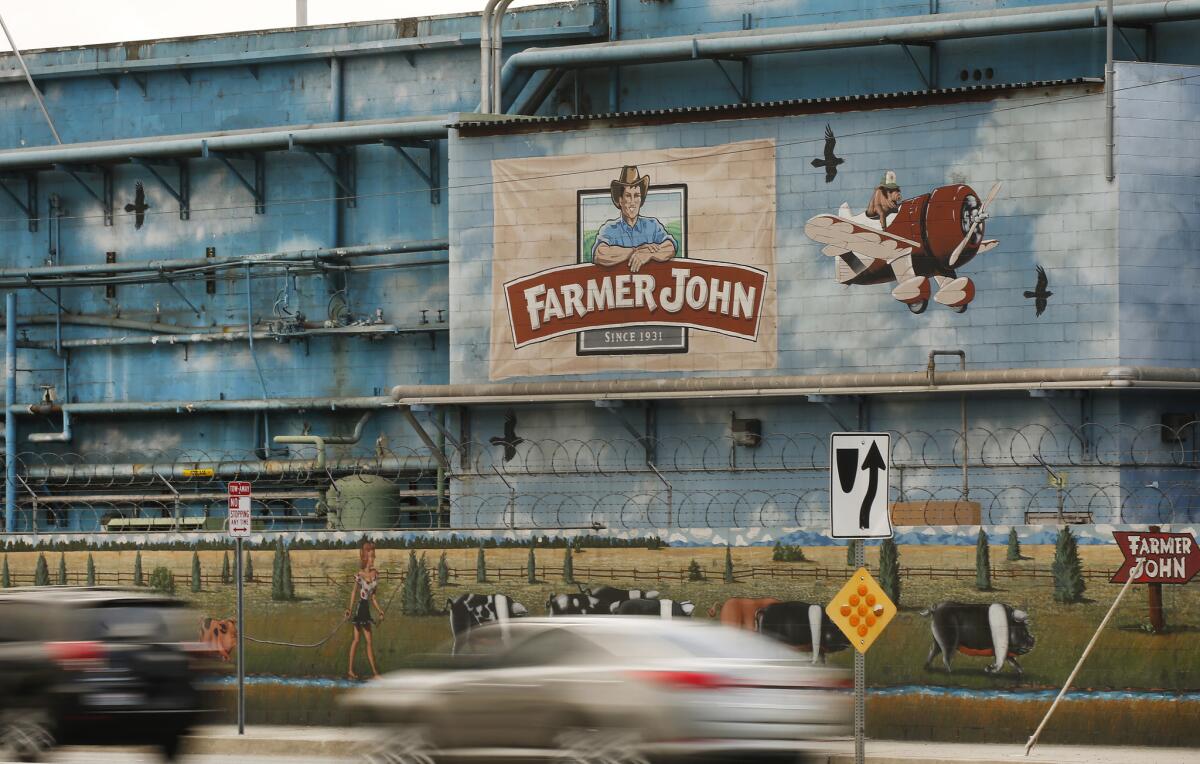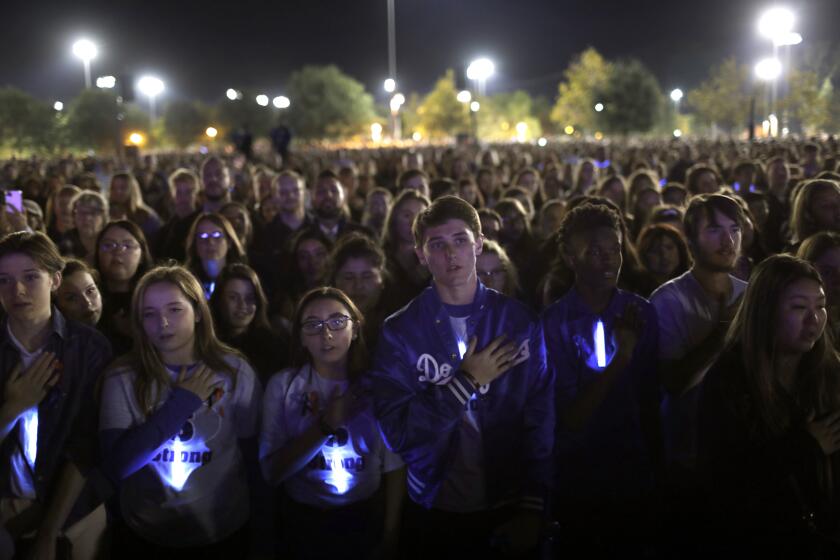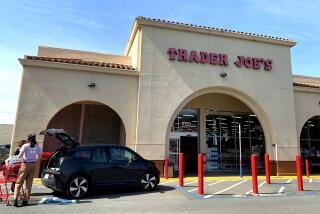Farmer John meatpackers demand closing of Vernon plant struck by COVID-19 outbreak

The union that represents workers at a Vernon meatpacking plant where at least 153 have come down with COVID-19 called Monday for the immediate closure of the facility, saying there was no evidence measures taken to control the coronavirus were working.
The outbreak at the Farmer John plant, a division of Smithfield Foods that produces Dodger Dogs and other pork products, is by far the largest in Los Angeles County to occur outside of a nursing home, prison or other residential setting, according to data from the county’s Public Health Department.
The union that represents most of the plant’s 1,800 employees alleges that the company delayed rolling out protective measures until workers were sick and has not been transparent about what it knows about how and to whom the virus is spreading within the facility.
“Smithfield has not provided full information about what is really going on inside the Vernon plant,” said John Grant, president of UFCW Local 770. “Without information we cannot make an informed decision about workers’ health and safety.”
When Adam Bratt studied the faces of his Advanced Placement psychology students that morning in December, he saw trauma.
The union wants Smithfield to continue paying workers while the company shutters the plant for cleaning and an investigation into whether it is in compliance with state regulators and the county health department.
In a statement Monday, Smithfield said its employees “are crucial to our nation’s response to COVID-19. We thank them for keeping food on America’s tables and have implemented aggressive measures to protect their health and safety during this pandemic.”
At Farmer John, the company has taken measures it says follow or exceed guidelines from the Centers for Disease Control and Prevention and the Occupational Safety and Health Administration. Those include providing personal protective gear, placing Plexiglas barriers on the production floor and in break rooms and screening for temperatures. The company has offered free testing, eliminated co-pays for virus-related treatments and paid workers while they are quarantined.
“We are doing everything we can, as fast as we can,” the company’s statement said.
The outbreak is part of a national wave of infections at meatpacking plants, where employees work long hours in tight quarters conducive to the spread of the coronavirus. Thousands have come down with COVID-19 at plants, including about one-fifth of the meatpacking workforce in Iowa and South Dakota, according to a CDC study.
At Farmer John, there was an initial outbreak in the ham-boning department last month, but it appeared to be under control until recently, union representatives said, when the number of cases reported to local health officials began skyrocketing.
The ballooning cases occurred as the company made voluntary testing available to all employees. A spokesman for the county Public Health Department, which has been assisting the city of Vernon in responding to the outbreak, said it was unclear whether the rise in cases was due to additional testing “or to spread amongst workers.”
Pedro Albarran, an El Monte resident who has worked at Farmer John for 25 years, said the company did not begin providing masks and face shields until his colleagues got sick and a delegation of workers went repeatedly to management.
“We kept asking and asking, and finally we got it,” he said.
California has released new coronavirus health guidance for religious services, limiting total attendance to 25% of a building’s capacity.
While some cutting lines now have Plexiglas barriers between workers, not all do, Albarran said. On his line, where pork shoulder is sliced, cutters still stand so close that they bump shoulders as they handle the meat, he said.
“It’s all day of that,” he said.
Smithfield Foods said workers outside the healthcare industry were not advised to wear face coverings until the CDC revised its guidelines on April 3. Overnight, the company faced the challenge of procuring masks and face shields at a time when supply chains were “stressed to the max.”
“We could not make these items materialize out of thin air. If we could, we certainly would,” the company’s statement said. “The suggestion that we were slow to react is simply not true and completely overlooks an inconvenient truth — supplies were not readily available.”
Vernon, an industrial city south of downtown L.A., has seen outbreaks at eight other food preparation plants, including meatpacking plants, a coffee company, a firm that produces frozen pizza, a packager of green tea and a bakery.
Many who work in Vernon live in southeast L.A. communities with high density, including Bell, Bell Gardens, Maywood and South Gate. Public health officials have said they are concerned about factory workers bringing the virus home to relatives and neighbors.
More to Read
Sign up for Essential California
The most important California stories and recommendations in your inbox every morning.
You may occasionally receive promotional content from the Los Angeles Times.













